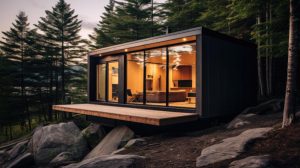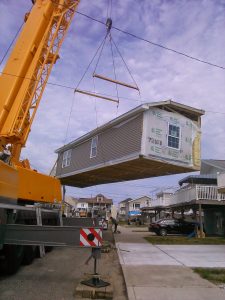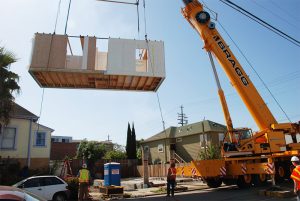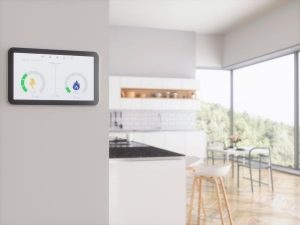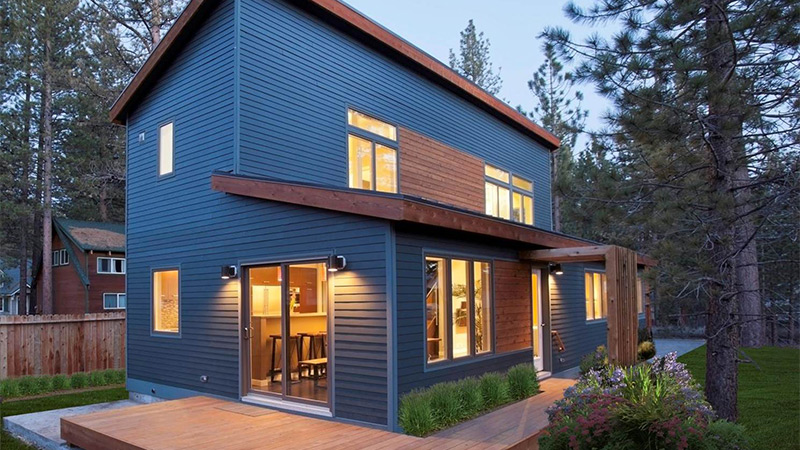
We hear a lot of talk about Zero Net Energy (ZNE) buildings. In California, all new homes are required to be designed to demonstrate zero net electricity usage beginning in 2020. Other states, including Massachusetts, are currently discussing whether to mandate similar requirements. But what will these new requirements mean to the affordability of new homes? And what impact will they have on the modular construction industry?
MHBA talked with some of its members to get their take on the subject.
What does Zero Net Energy mean?
The U.S Department of Energy defines a Zero Energy Building (ZEB) as “An energy-efficient building where, on a source energy basis, the actual annual delivered energy is less than or equal to the on-site renewable exported energy.” It’s important to note that this is also the definition adopted by California, making it the most likely definition to be used across the country.
With a nationwide shortage of affordable housing, particularly in California, won’t any added construction costs have a negative impact on the overall affordability of housing?
The Effects of ZNE Requirements on Price
“We expect that our cost for each single family home we build in California to increase at least by $20,000-$25,000 to include items required to meet Zero Net Energy code in California beginning in 2020,” said Todd Kessler, CEO or U.S. Modular in California. “We expect additional costs for homeowners will include solar system (minimum cost of $15,000), HERS testing, Energy Star appliances, solid core doors, and increased insulation.”
Obviously, the upfront purchase price of a new home will increase. But the overall long-term operating costs of the home should also be considered. According to the American Council for an Energy-Efficient Economy, low-income households are often disproportionately burdened with utility bills because the units are often older and inefficient. In Providence, Rhode Island, for example, low-income households spend 9.5% of their income on energy, compared to 4.7% for all households.
Is ZNE Worth It?
What is the payback on this type of upfront investment in energy efficiency, and might this requirement actually help families? Harris Woodward, CEO of Maryland-based Finish Werks, thinks so. Woodward has made his reputation by building custom, energy efficient modular homes and thinks reaching zero net energy with modular is “as easy as checking the boxes.”
“Using modular construction to over insulate and air seal our homes in a factory setting gets the HERS Rating lower is STEP ONE”, he says. “Then, once the envelope is tight, the HVAC system can drop in size substantially. We use high efficiency hot water heating and install Energy Star appliances and lighting (LED). Once you do that–a robust envelope w/ heating/cooling/appliances/lighting that draw much less power - then you can spec a much smaller Solar PV system to get to HERS 0, or Net Zero Energy.”
On a $40,000 upfront investment in ZNE, financed over 30 years at 4%, the additional monthly cost would be about $191/month, with no added incentives from utility companies. Proponents suggest that monthly utility savings will equal or exceed that amount.
"Willingness to Pay"?
A recent report from the Rocky Mountain Institute estimates that the incremental cost to build a ZNE home ranged from 6.7% to 8.1% depending on the market. The report also analyzed how long it would take in 50 major cities for ZE homes to pay back the added investment in efficiency and solar. The payback period for the top ten cities ranged from 7.8 years in San Francisco to 11.4 in Chicago.
The same report also indicates a consumer “willingness to pay” premium for ZNE homes. From the report: This threshold compares the incremental cost to build a ZE and ZER home (compared with an identical home that meets local energy code) with the first cost premium customers have stated they’re willing to pay in consumer research. According to the latest NAHB research, 42% of consumers are willing to pay a 4% premium for a green home, and 51% of consumers are willing to pay a 4% premium for a ZE home, according to an Opinion Dynamics survey performed in California.
The Challenges of ZNE Requirements
One of the biggest challenges with implementing this requirement is the regulatory review process, quality assurance, and compliance, both pre- and post-occupancy. Are code officials equipped and ready to enforce ZNE if mandated?
“Many of the building departments and factories are not quite sure what is required in 2020 as they are still working on 2019 projects,” Kessler said. “We will most likely run into is increased time at local building departments as they review the 2020 building code requirements. There will also be additional permits and fees as solar systems require a separate permit with separate fees.”
Zero Net Energy homes look like a smart investment option for those wanting lower utilities and to live a more sustainable lifestyle. And with modular construction, that option can be more attainable. But until such time as building code officials and policy makers have the training and resources to effectively and fairly enforce these policies, ZNE should remain just that – an option.
Learn More About the Benefits of Modular Homes
Pros and Cons of Modular Homes
The pros of modular homes include lower costs over traditional construction methods, better quality, improved construction speed, and better resilience while the cons consist of a bit more complicated financing process, lack of customization, and the social stigma that is the consequence of the low-quality of modular homes in the past. In this article, we…
More Than Ever, The Modular Future is Now
In 2007, the United States faced a housing crisis that caused the Great Recession and had economic ramifications for years. Some people called it the subprime mortgage crisis. One cause of the crisis is that lenders gave loans to potential homeowners even if the buyers couldn’t afford them.
Is Modular Housing the Solution to the Housing Crisis?
In 2007, the United States faced a housing crisis that caused the Great Recession and had economic ramifications for years. Some people called it the subprime mortgage crisis. One cause of the crisis is that lenders gave loans to potential homeowners even if the buyers couldn’t afford them.
Creating Affordable Energy-Efficient Housing Through Modular Building
It feels like everyone — consumers and contractors alike — is looking for ways to improve their homes’ energy efficiency. Thanks to climate change, dangerously hot summers and brutally cold winters make it more challenging to keep structure interiors comfortable.
Ways a Modular Home Can Save You Money
Are modular homes cheaper than site built homes? Why are modular homes cheaper than site built homes?
What’s in a Name? Modular, Manufactured, Prefab, Offsite?
What is the difference between modular homes, manufactured homes, prefab homes, and homes built offsite?
Latest Modular Design Trends
What are the latest modular design trends? What trends are on the horizon?
Why Tiny Houses are NOT Modular Homes…Yet.
Are tiny homes the same thing as modular homes? What is the difference in a tiny home and a modular home?
